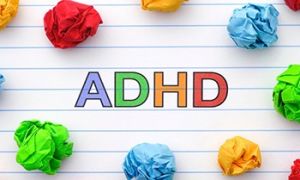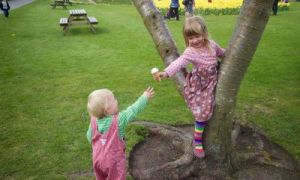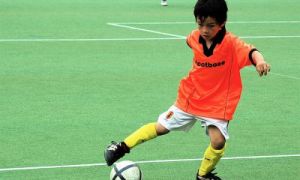

This is a guide for educators on what to observe under each sub-learning outcome from the EYLF Framework Version 2, when a child is engaged in play and learning. Educators can plan experiences for the curriculum and for individual learning and gain an understanding of how children can achieve each individual outcome.
THE EYLF Outcomes and Children Achievement Posters is a guide for educators on how children can achieve under each sub-learning outcome of the EYLF Learning Outcomes Version 2.0. When evaluating individual and group experiences under a particular outcome, educators can use this to see if a child has achieved each outcome. Educators can also plan experiences for the curriculum and for individual learning and gain an understanding of how children can achieve each individual outcome.
This template is used by Educators for observations. This template links to the sub-outcomes of Learning Outcome 2 - Children Are Connected With And Contribute To Their World.
ACECQA has released new resources explaining the updates to the nationally approved learning frameworks EYLF, and MTOP and clarification and expanded explanation across parts of the original learning frameworks. The following provides the EYLF and MTOP Version 2 Booklets as well as other information resources.
The EYLF In Action Posters provide examples of how each learning outcome can be demonstrated within the learning environment. These are great to display to show how children and Educators are actively engaging in each learning outcome.
The EYLF Outcomes and Activities Posters provide a list of activities under each individual eylf learning outcome. The list of activities matches a specific outcome. This will help to understand what types of activities could come under each EYLF Learning Outcome.
The EYLF Posters With Images can be used to display within the service. Each individual outcome includes an image and the sub-outcomes. The Learning Outcomes are to be used to reflect on children’s learning and focus on what a child can achieve. These include Version 2.0 outcomes which were recently updated (2023).
This template is used by Educators for observations. This template links to the sub-outcomes of Learning Outcome 1 - Children Have A Strong Sense Of Identity Version 2.0 (2023).
The following provides a list of cheat sheets and free printables based on EYLF Outcomes Version 2.0. These can be used as a reference point for Educators. They can also be used to refer to when documenting and planning.
The 8 Practices are supported by early childhood pedagogy's guiding principles. The following article provides details of each of the 8 Practices in the EYLF.
 Toddlers have a greater understanding of the world around them by this stage. Their cognitive development (also known as intellectual development and thinking skills) continues… Read More
Toddlers have a greater understanding of the world around them by this stage. Their cognitive development (also known as intellectual development and thinking skills) continues… Read More
 Infants begin to develop trust when parents begin to fulfil their needs. Such as changing an infant's nappy when needed, feeding on request and holding… Read More
Infants begin to develop trust when parents begin to fulfil their needs. Such as changing an infant's nappy when needed, feeding on request and holding… Read More
 Beginning at birth the construction of thought processes, such as memory, problem solving, exploration of objects etc, is an important part of an infant’s cognitive… Read More
Beginning at birth the construction of thought processes, such as memory, problem solving, exploration of objects etc, is an important part of an infant’s cognitive… Read More
 Toddlers want to do more on their own and do not like it when you begin to establish limits on their behaviour. Tantrums can become… Read More
Toddlers want to do more on their own and do not like it when you begin to establish limits on their behaviour. Tantrums can become… Read More
 Your preschooler is now able to focus their attention more accurately and is less influenced by distractions. The intensity of questions increase as your child… Read More
Your preschooler is now able to focus their attention more accurately and is less influenced by distractions. The intensity of questions increase as your child… Read More
 John Dewey is often seen as the proponent of learning by doing – rather than learning by passively receiving. He believed that each child was active,… Read More
John Dewey is often seen as the proponent of learning by doing – rather than learning by passively receiving. He believed that each child was active,… Read More
 Toddler advance and gains new skills in Gross Motor Development milestones achieved throughout earlier years. Co-ordination and challenges that could not be performed before such… Read More
Toddler advance and gains new skills in Gross Motor Development milestones achieved throughout earlier years. Co-ordination and challenges that could not be performed before such… Read More
 Erik Erikson developed a psychosocial theory to understand how we each develop our identities through eight stages of psychosocial development from infancy to adulthood. The… Read More
Erik Erikson developed a psychosocial theory to understand how we each develop our identities through eight stages of psychosocial development from infancy to adulthood. The… Read More
 At this point preschoolers begin to interact effectively with others. Play becomes more innovative and organized and “boyfriend” or “girlfriend” begins to emerge. Preschoolers have… Read More
At this point preschoolers begin to interact effectively with others. Play becomes more innovative and organized and “boyfriend” or “girlfriend” begins to emerge. Preschoolers have… Read More
 From now, babies begin to identify and respond to their own feelings, understanding other's feelings & needs and interact positively with others. A baby's social and… Read More
From now, babies begin to identify and respond to their own feelings, understanding other's feelings & needs and interact positively with others. A baby's social and… Read More

Attention Deficit Hyperactivity Disorder (ADHD) is a neurodevelopmental condition that affects a child’s ability to...
See more...
As a parent, your behavioural expectations of your child can be higher than what is...
See more...
A school age child’s physical development has increased considerably at this point. Gross motor skills...
See more...© 2009-2025 Aussie Childcare Network Pty Ltd. All Rights Reserved.

